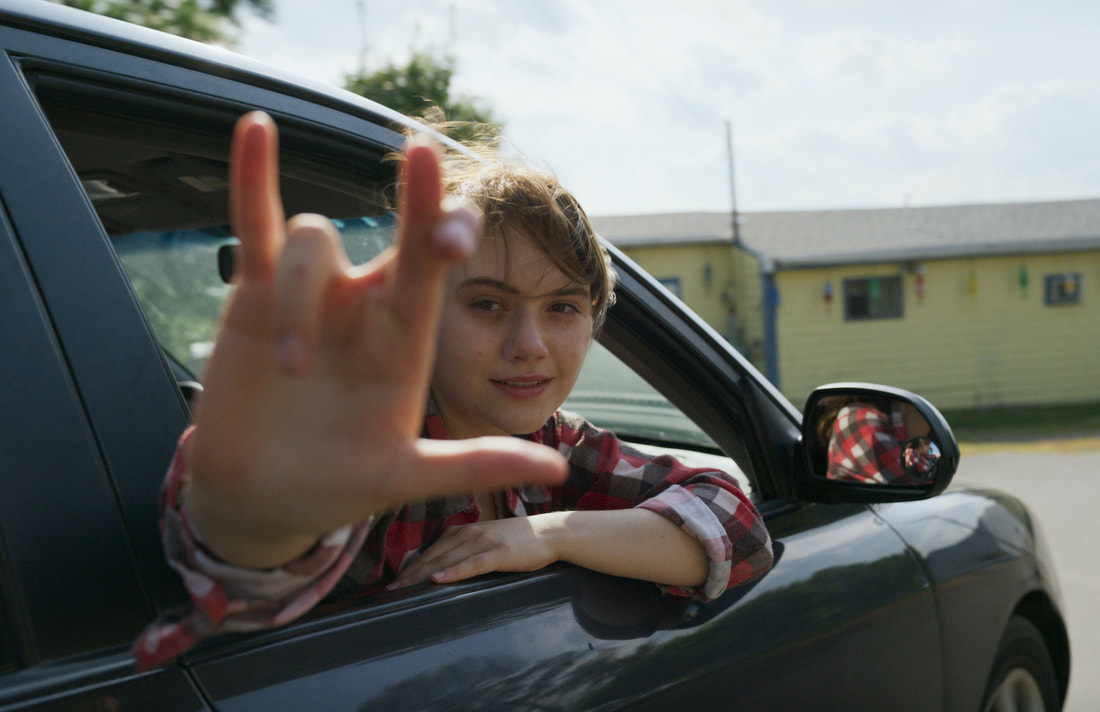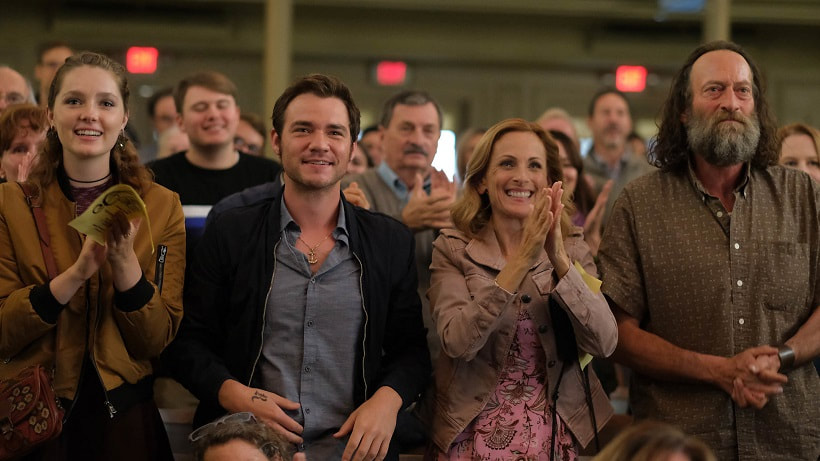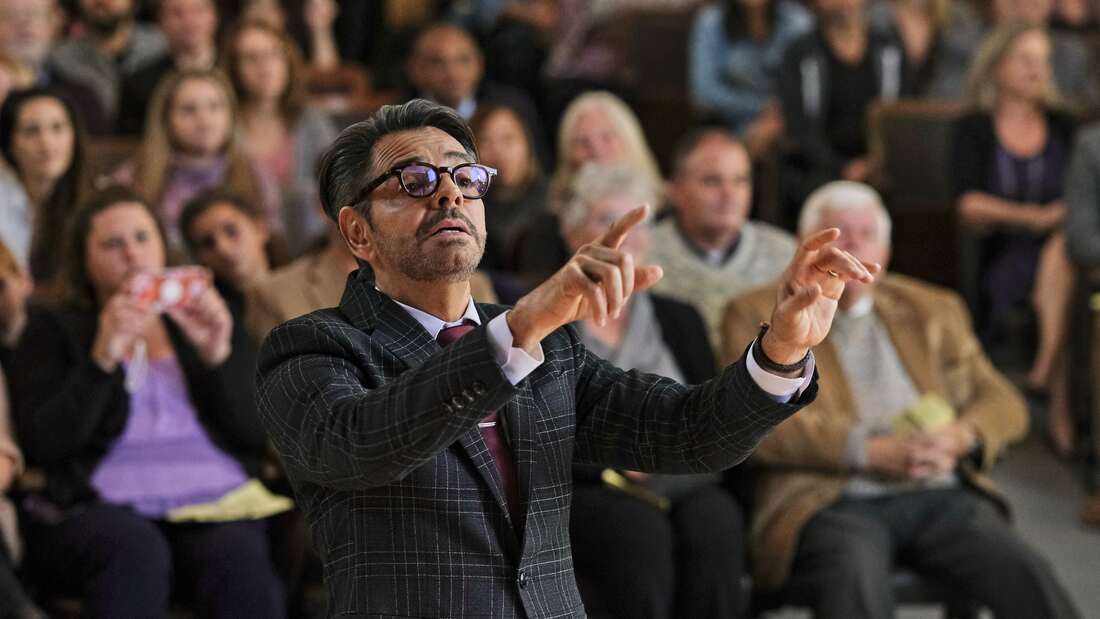|
Emilia Jones in CODA (2021) Get a box of tissues ready for writer-director Sian Heder’s heartwarming film CODA, a coming-of-age story full of lived-in family dynamics that aren’t often represented on screen. Based on the 2014 French film The Bélier Family, CODA instantly improves upon its source of narrative inspiration by casting Deaf actors (including Marlee Matlin, Troy Kotsur, and Daniel Durant) in the roles of Deaf characters. Heder portrays the Deaf community with rich emotional journeys and a broad range of traits, championing their perspectives in a compassionate way. At the core of this film is the love language of a family, specifically the Rossi’s and all the qualities that make them who they are. CODA is a thoughtful, impeccably acted journey about the intimacy of family connections. Set in the blue-collar fishermen world in Cambridge, Massachusetts, CODA incorporates elements shared and not shared between the hearing and the Deaf community. The story follows Ruby Rossi (Emilia Jones), a child of Deaf adults who is the only hearing person in her home. She wakes up early every morning to catch fish with her father Frank (Troy Kotsur) and brother Leo (Daniel Durant). She goes to school, hangs out with her friend Gertie (Amy Forsyth), has a crush on Miles (Ferdia Walsh-Peelo), and on a spur of the moment joins the choir. Music is Ruby’s lifeline. Whether she’s singing along to songs on her family’s boat, adding a soundtrack to her bike ride, or making use of the record player in her bedroom, music is around in resonating little details. In a sea of pretty voices with nothing to say, Ruby’s music teacher Mr. V, formally Bernardo Villalobos (Eugenio Derbez), spots her real talent. She has a lot to convey, and does so with a stunning singing voice. Mr. V urges her to perform a duet with Miles and audition for a prestigious music school in Boston. Her passion for singing is something her parents, including mother Jackie (Marlee Matlin), are trying to connect with. Then when the family’s business is threatened, Ruby finds herself torn between family obligations and her dedication to music. Ruby is a refreshingly written character in the canon of formulaic coming-of-age films. The push-pull dynamic between following her passion and being present to support her parents is rooted in sincerity. Rather than antagonize her family and create a one-note narrative, CODA explores the grey areas in creating an identity apart from one’s family. The film focuses on the stage of Ruby’s life where, for the first time, she’s on the cusp of doing something without her family. All the complex emotions that come with this responsibility are conveyed with ease by Emilia Jones. She does a remarkable job carrying the film and giving a window into the soul of her character, who has a lot on her shoulders as an interpreter. Ruby’s family count on her to voice what they sign for the hearing world, a world that is not often facilitative of Deaf culture. The film gives a voice to many perspectives from the family; not only Ruby who feels that her stuff is important too, but also Leo for instance, who stresses he’s capable of navigating the hearing world without her. He wants the family to finally be part of their community, and sees the potential of starting their own fishing business as a great opportunity to interact with others. Sian Heder writes complex, well developed characters full of personality and disposition. The actors add an incredible depth to the Rossi family; each of their performances are lived-in and rich in detail. Simply watching the family interact with one another is an integral part of what makes the film so charming. It’s an instantly feel-good story that invites a wholesome look into how the Rossi family communicate with each other, the warmth of their home life, and how this setting facilitates a sense of togetherness where they’ve become such a tight-knit unit. The stories that happen inside Deaf people's homes are missing from representation in film and television. So often, Deaf characters are solely defined by being Deaf, and their narratives are not centered. It’s wonderful to see a film that is pushing for authenticity on screen. Also watching how Frank, Jackie, and Leo navigate the hearing world is equally compelling, as Heder shines a light on many of the ways in which this world is not inclusive of Deaf culture. There is both a specificity and universality to how the family are depicted. Amy Forsyth, Daniel Durant, Marlee Matlin, and Troy Kotsur in CODA (2021) Eugenio Derbez in CODA (2021) Adding to the lived-in quality of these characters is an outstanding ensemble of actors who deliver such resonating performances. Everyone in the Rossi family has their moment to truly shine and provide a window into their characters’ interior lives. Troy Kotsur in particular is an incredibly expressive actor, and he has some of the most moving scenes in the story as Ruby’s father Frank. He has a stunning moment with Emilia Jones towards the end of the film where, having returned home after a school concert, Frank gently holds Ruby’s neck to feel the reverberations of her vocals as she sings to him personally. Emotional moments such as this, sprinkled throughout the film, convey how CODA is less about a musical journey and more about a family understanding each other. The intimacy of Frank sitting with his daughter, in an embrace as he tries to understand her passion, comes from a genuine place and that is what makes the film so emotionally resonating. Speaking of loving embraces, Jackie shares a similar scene with Ruby in terms of finding a way to connect. As Jackie sits on her daughter’s bed, thinking about the day she was born and revealing initial worry that they wouldn’t connect, so much is said about these characters. Sian Heder finds gems of moments in vulnerable, intimate, comforting places, and the actors go on this search with her. Marlee Matlin gives a fantastic performance, so full of energy and longing. Daniel Durant is also great as Ruby’s brother Leo; he too gets a resonating moment to shine. Durant strongly conveys the frustration bubbling underneath the surface about how Ruby’s hesitance to follow her dreams has an effect on the family. CODA has a stellar ensemble of actors beyond the Rossi family, from Eugenio Derbez and Ferdia Walsh-Peelo to Amy Forsyth, all of whom are entertaining to watch.
The coming-of-age genre is riddled with cliches and trappings that plenty of films fall into. While CODA feels a little formulaic at times, setting up the story to reach certain emotional heights, Sian Heder does a great job subverting a lot of expectations. Music is an integral part of the story; the soundtrack is lovely, as is Emilia Jones’ singing voice, especially in her big audition scene with Joni Mitchell's 'Both Sides Now'. Music also doesn’t command the focus. At the core of CODA is a family; how do they communicate, how do they connect or not connect, how do they share or not share in each other’s experiences. Rather than relegate the protagonist’s family to cheer from the sidelines, they are actively involved in the story. Ruby and Miles’ duet for their school concert is a winning example; this scene could have easily become Ruby’s star moment. Heder re-centers the focus onto Frank and Jackie sitting in the audience; how are they experiencing the concert. How do they navigate the space of a hearing community and find a connection with their daughter on stage? Whether it’s this scene, or an emotional final act that brings on the heavy sobs, all these moments emphasize the Rossi family’s love language as the beating heart of the film. CODA is full of heart. It’s an uplifting story about family obligations and following your own path while wrestling with the guilt of being away from your family, particularly for the first time. Sian Heder’s winning screenplay, and an outstanding ensemble of actors who lift her words off the page, is a love letter to family. The film gives an immersive window into the Rossi home and all the details that make up their tight-knit dynamics. Right down to the set design details and the creation of an overall home that looks lived-in, everything feels rooted in depictions that feel passionately true. Moving and impeccably acted, CODA makes a reverberating impact as a thoughtful piece of work. CODA will be released on Apple TV+ starting August 13th.
0 Comments
Leave a Reply. |
Archives
June 2024
Categories |




 RSS Feed
RSS Feed